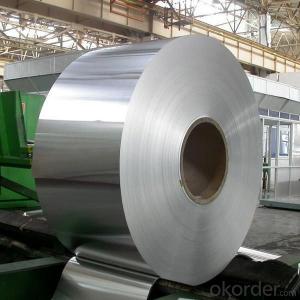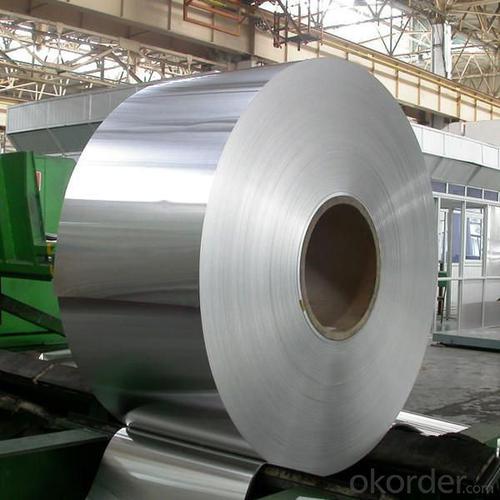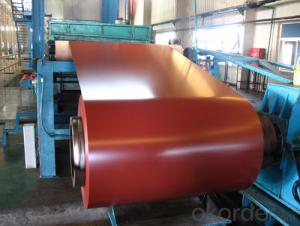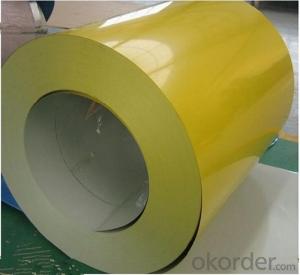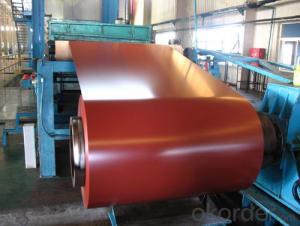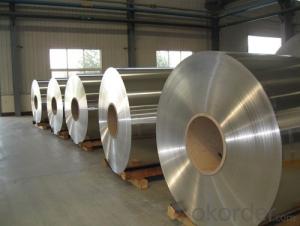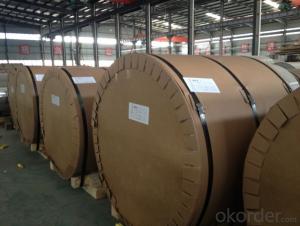Aluminum Steel Coils for Decoration Materials Production
- Loading Port:
- Shanghai
- Payment Terms:
- TT OR LC
- Min Order Qty:
- 5 m.t.
- Supply Capability:
- 60000 m.t./month
OKorder Service Pledge
OKorder Financial Service
You Might Also Like
Specification
Aluminium Coil For Decoration Materials Production
Alloy | 1050, 1060,1100, 3003 3004 3105 3A21 5005 5052 etc |
Temper | O/H12/H14/H1/H18/H32/H34/H36/H38//H111/H112/H116/H321/T6/T651/T3/T351 etc |
Thickness | 0.1mm to 6mm |
Width | 20mm to 3300mm |
Coil weight | 100kgs to 6 tons depends on actual requirement |
Core material | Aluminum or paper |
Coil inner diameter | 75mm, 150mm, 200mm, 300mm, 405mm, 505mm or as required |
Appplication | construction, roofing, decoration, lamping etc |
Package | eye to wall or eye to the wall for aluminum coil with wood pallet (wooded case also available) |
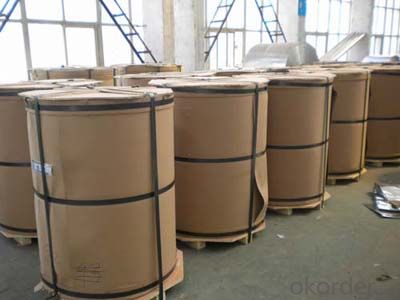
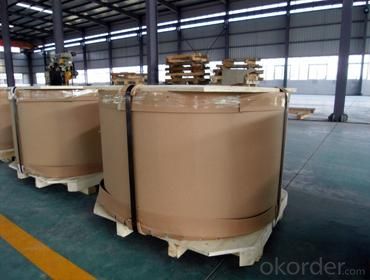
3) Glass curtain wall frame
4) Interior decoration
5) Elevator decoration
6) Signs, nameplate, bags making.
7) Automobile parts material
8) Office and Household appliances: HVAC equipments
9) The consumer electronics: mobile phones, digital cameras, MP3 .etc.
Coating varieties
Polyester Coatings (PE)
PE (polyester) coatings exhibit an excellent combination of hardness, flexibility, flow, appearance, and superior resistance to dirt retention in indoor and outdoor applications. These coatings are highly resistant to abrasion, metal marking, staining, and marring, and require minimal maintenance. Glazetech uses polyester paints which provide excellent colour and gloss retention properties.
Polyvinylidene Fluoride Coatings (PVDF)
PVDF (polyvinylidene fluoride) is a chemical resistant thick film barrier coating commonly used in architectural applications where both excellent appearance and substrate protection must be maintained over a long period of time. This coating is unaffected by most chemicals and solvents and has excellent wear and abrasion resistance. PVDF also has a high dielectric strength, excellent resistance to weathering and the ability to self extinguish.
FAQ
--Q: Do you provide free samples?
--A: Yes, free samples will be sent to you on freight at destination.
--Q: Can I get your latest products catalogue?
--A: Yes, it will be sent to you in no time.
--Q: What is the MOQ?
--A: 2 tons
--Q: What are your payment terms?
--A: We accept L/C, T/T.
--Q: What kinds of alloy can you supply?
--A: 1000 series: 1050, 1060, 1070, 1100, 1145, 1200
3000 series: 3003, 3004, 3105, 3104
5000 series: 5052, 5083, 5754, 5182
6000 series: 6061, 6063, 6062, 6063
8000 series: 8011, 8021
--Q: What’s the coating of top side?
--A: PVDF and PE coating
--Q: What kinds of temper can you supply?
--A: O-H112: O,H12,H14,H16,H18,H22,H24,H26,H,32,H34,H111,H112
T3, T4, T6
- Q: Are aluminum coils suitable for architectural façade systems?
- Indeed, architectural façade systems can indeed make use of aluminum coils. Aluminum is a remarkably adaptable and enduring material; it can be easily molded and manipulated to suit the specific design requirements of a building's façade. It possesses a lightweight structure, is resistant to corrosion, and can endure extreme weather conditions, rendering it an optimal choice for long-lasting exterior applications. Moreover, aluminum coils can be coated with a variety of finishes, such as paint or anodizing, to heighten their aesthetic appeal and provide additional protection against fading or chipping. The pliability and versatility of aluminum coils make them an exceptional choice for architectural façade systems, enabling the creation of imaginative and distinctive designs while maintaining durability and performance.
- Q: Pretty please can someone show me the steps on how to do this one?Calculate the mass in grams of iodine (I2) that will react completely with 43.7 g of aluminum (Al) to form aluminum iodide
- Aluminum Iodide is AlI3 - one aluminum atom bonded to three Iodine atoms. Look up the atomic weight of Aluminum. Look up the atomic weight of Iodine. Al / 43.7g =3 X Iodine / mass Mass of Iodine required = 43.7 X Atomic weight of Iodine X 3 / Atomic weight of Aluminum
- Q: This question asks for the method to cut an aluminum coil into smaller sections.
- <p>To cut an aluminum coil into smaller pieces, you can use a metal cutting band saw, which is designed for cutting metal materials. Ensure the blade is sharp and the speed is appropriate for aluminum. Secure the coil in a vice or a cutting table to prevent movement during cutting. Wear safety goggles and gloves. Turn on the saw and slowly feed the coil through the blade, applying steady pressure. After cutting, smooth any rough edges with a file or sandpaper. Always follow safety precautions and manufacturer's instructions for your specific cutting tool.</p>
- Q: What is the maximum coil diameter for aluminum coils?
- The maximum coil diameter for aluminum coils can vary depending on the specific application and industry standards. However, in general, aluminum coils typically have a maximum diameter of around 72 inches (6 feet) to ensure ease of handling and transportation.
- Q: How are aluminum coils tested for strength and durability?
- Aluminum coils are tested for strength and durability through a rigorous process that involves several methods. One common method is tensile testing, which measures the maximum amount of stress a coil can withstand before it breaks or deforms. This test helps determine the overall strength and elasticity of the aluminum. Another important test is the hardness test, which measures the resistance of the aluminum coil to indentation or scratching. This test helps determine the durability and wear resistance of the material. Furthermore, aluminum coils are often subjected to fatigue testing, where the material is repeatedly subjected to cyclic loading and unloading. This test helps simulate real-life conditions and assesses the coil's ability to withstand repeated stress without failure. Additionally, corrosion resistance is a critical factor in determining the durability of aluminum coils. Therefore, various corrosion tests are conducted, such as salt spray testing, to assess the coil's resistance to environmental factors that may lead to corrosion or degradation over time. In some cases, non-destructive testing methods like ultrasonic testing or eddy current testing are employed to detect any internal defects or inconsistencies within the coil that may affect its strength and durability. Overall, a combination of mechanical, physical, and chemical tests are conducted on aluminum coils to ensure they meet the required strength and durability standards. These tests help manufacturers and consumers have confidence in the quality and reliability of the aluminum coils for various applications.
- Q: How do aluminum coils perform in cryogenic environments?
- Aluminum coils generally perform well in cryogenic environments due to their low thermal expansion coefficient and high thermal conductivity. When exposed to extremely low temperatures, aluminum coils exhibit minimal contraction and expansion, making them suitable for use in cryogenic applications. The low thermal expansion coefficient ensures that the coils maintain their structural integrity and do not deform or crack under extreme temperature fluctuations. Additionally, aluminum's high thermal conductivity allows for efficient heat transfer, enabling the coils to dissipate excess heat and maintain a stable temperature within the cryogenic environment. Overall, aluminum coils are a reliable choice for use in cryogenic environments and can effectively withstand the challenges posed by extremely low temperatures.
- Q: What are the different color options available for aluminum coils?
- Aluminum coils offer a range of color options to choose from. Popular choices include white, black, gray, brown, and beige. These colors are obtained by applying a layer of paint to the aluminum coil using a technique known as coil coating. The paint used is of high quality and durability, ensuring resistance against fading, chipping, and cracking. Apart from these standard colors, there is also the option to customize the color according to individual preferences and design requirements. This customization is achieved through a color matching process, where a specific color is created for the project. The wide variety of color options available for aluminum coils ensures that there is a suitable choice for any residential, commercial, or industrial application.
- Q: Is there any legislation or regulation governing the use of aluminum coils within specific industrial sectors?
- <p>Yes, there are regulations on using aluminum coils in certain industries. These regulations often vary by country and industry. For instance, in the food and beverage industry, aluminum coils may be subject to food safety standards to ensure they do not contaminate products. In construction, they might need to meet building codes and specifications for strength and durability. The aerospace industry has stringent regulations regarding the materials used in aircraft parts, including aluminum coils. Compliance with these regulations is crucial to ensure safety, quality, and to avoid legal penalties.</p>
- Q: This question asks about the applications of aluminum coil in the field of architecture.
- <p>Aluminum coil is widely used in architecture for various purposes. It is utilized in the manufacturing of aluminum composite panels, which are lightweight, durable, and have excellent weather resistance, making them ideal for facades and exterior cladding. Aluminum coil is also used in the production of roofing materials and rainwater systems due to its corrosion resistance and strength. In addition, it is employed in the creation of window frames and doors for its thermal insulation properties and aesthetic appeal. Furthermore, aluminum coil is used in the construction of structural components such as beams and columns, taking advantage of its high strength-to-weight ratio and recyclability. Its versatility and sustainability make aluminum coil a popular choice in modern architectural design.</p>
- Q: Can aluminum coils be customized to specific thicknesses and widths?
- Yes, aluminum coils can be customized to specific thicknesses and widths. Aluminum coils are often used in various industries such as construction, automotive, and aerospace, where specific dimensions are required for different applications. The customization process involves adjusting the thickness and width of the aluminum coils according to the customer's specifications. This can be done through a variety of methods, including rolling, slitting, or cutting the coils to the desired dimensions. Additionally, the customization process can also include other modifications such as surface treatments or coatings, depending on the application requirements.
Send your message to us
Aluminum Steel Coils for Decoration Materials Production
- Loading Port:
- Shanghai
- Payment Terms:
- TT OR LC
- Min Order Qty:
- 5 m.t.
- Supply Capability:
- 60000 m.t./month
OKorder Service Pledge
OKorder Financial Service
Similar products
Hot products
Hot Searches
Related keywords
